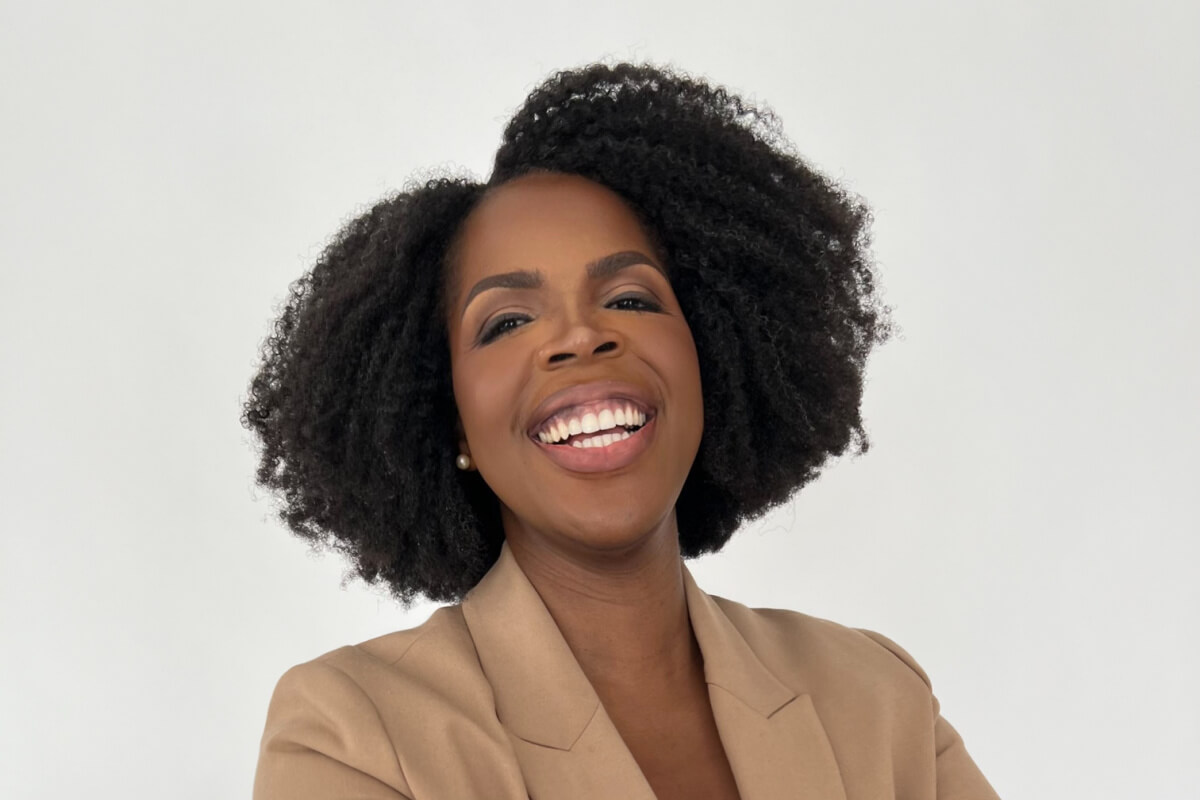Affectionately known as Dr. Amaka, Dr. Nneamaka Nwubah is a board-certified plastic and reconstructive surgeon making a name for herself in Nashville and beyond. Committed to surgical excellence and patient-centered care at Amaka Aesthetics, she helps patients achieve confidence-boosting transformations.
First inspired by the life-changing impact of breast reconstruction while in medical school, she now specializes in procedures for the breast, body, face, and skin, with a focus on “mommy restorations.” Get to know this talented FACE of Nashville!

Can you tell us a bit about yourself? Where are you from, and what led you to Nashville?
I was born in New Orleans, LA. Both of my parents are immigrants and originally from Nigeria. I am one of five children — the youngest and a twin. I did medical school at Vanderbilt, and then I left for my residency and fellowship; it felt so good to come back. I loved Nashville so much, and my husband did, too. I was thrilled with the opportunity to offer something unique and different here, and also to raise a family here.
What inspired your passion for reconstructive surgery?
It all started during my third year of medical school when I observed the surgeon doing breast reconstruction for a woman after she was diagnosed with breast cancer. It reminded me of a lady I met on a medical mission who had her breast cancer removed and came to us because she felt like the cancer was still there.
At the time, I was about 13. But I never forgot her because she kept saying, “It’s still there.” I now realize that it was the absence of reconstruction and restoration of that body part that she was missing. It was as if, even though the cancer had been removed, every time she looked in the mirror, she was reminded of it.
Well, fast-forward to my third year of medical school. I saw the surgeons come in to do breast reconstruction, and I got goosebumps. My heart was racing. At that point, I knew.
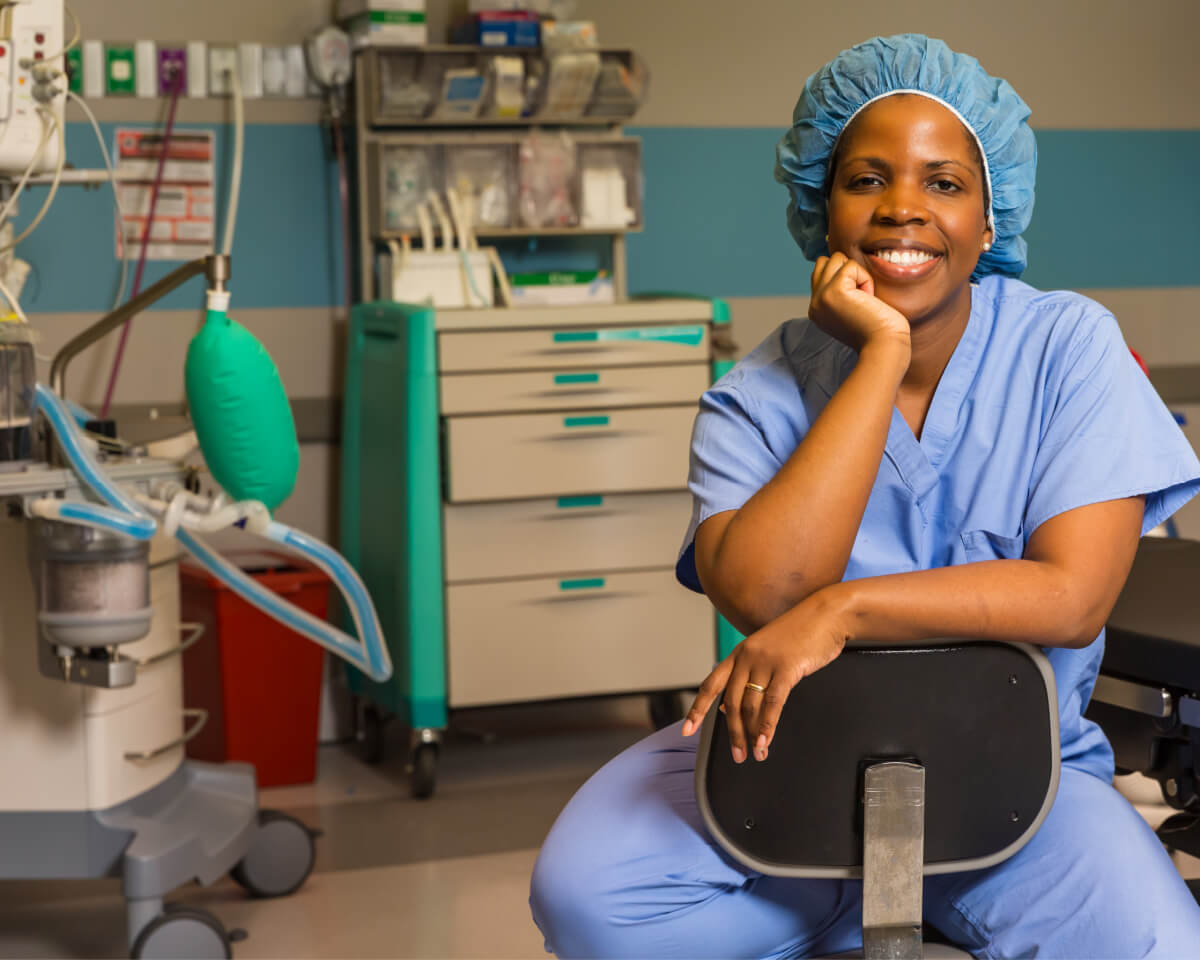
Tell us about your approach to connecting with patients.
First off, the majority of patients I see are women. By being a woman alone, we have a common bond. Often, I treat mothers who also see me as a mother and know I understand things that really can’t even be put into words. Beyond that, I always ask patients what their goals and visions are.
The treatment plan is based on that — not on what I think they should do. We have a team of all women, and we empower patients with knowledge and information, which is something I believe in and do on all of my social media platforms, too.
You’ve coined the term “mommy restoration.” What inspired this concept?
I often saw women who came in with shame over the desire to even have this done. As most people know, the majority of plastic surgeons are men. And this is nothing against men; some of my most influential mentors are men. But when I stepped into their shoes, I felt the term “makeover” was one of vanity. I could see how that term was negatively impacting many women. When you do a makeover, you are giving someone something they never had … something they can only envision as a dream. However, the reality is that the majority of women simply want to get back to themselves.
Some women don’t recognize themselves after childbearing. And don’t get me wrong, as a mother myself, having children is one of the most amazing blessings. But the reality is that it does change our bodies permanently. So, it just came to me one day that we should call it a “mommy restoration.” And that’s what I did.
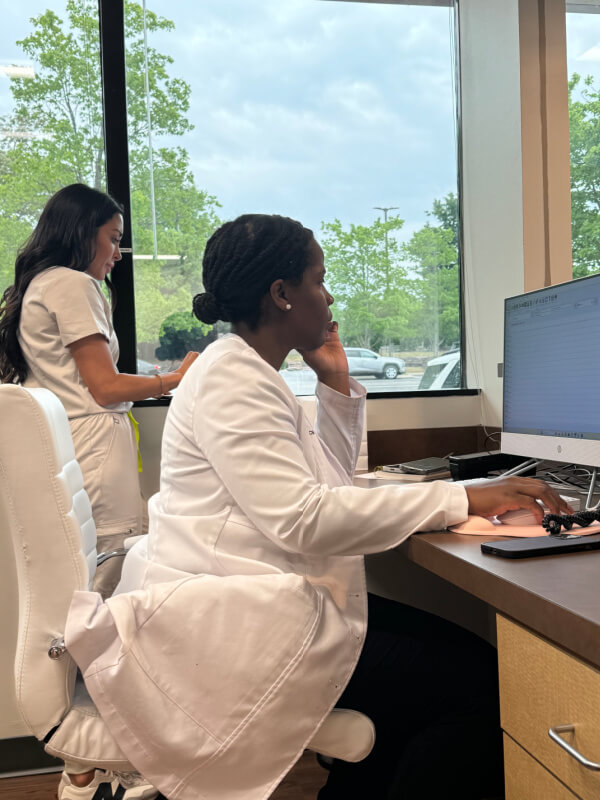
As a Black plastic surgeon, how do you address the unique concerns faced by patients of color?
Well, the number one thing is debunking the myths that are out there about patients of color and scarring. For example, there is a myth that as a patient of color, you will automatically have bad scars. I have not found this to be true. I feel like people come in, and that is the expectation — oftentimes, it’s what they are falsely told.
I also feel it’s important for me to be out there so that women of all colors can know that plastic surgery is for everybody. For a long time, plastic surgery was something taboo in the Black community. I have a unique understanding of different body types and shapes and what women of different ethnicities might be looking for.
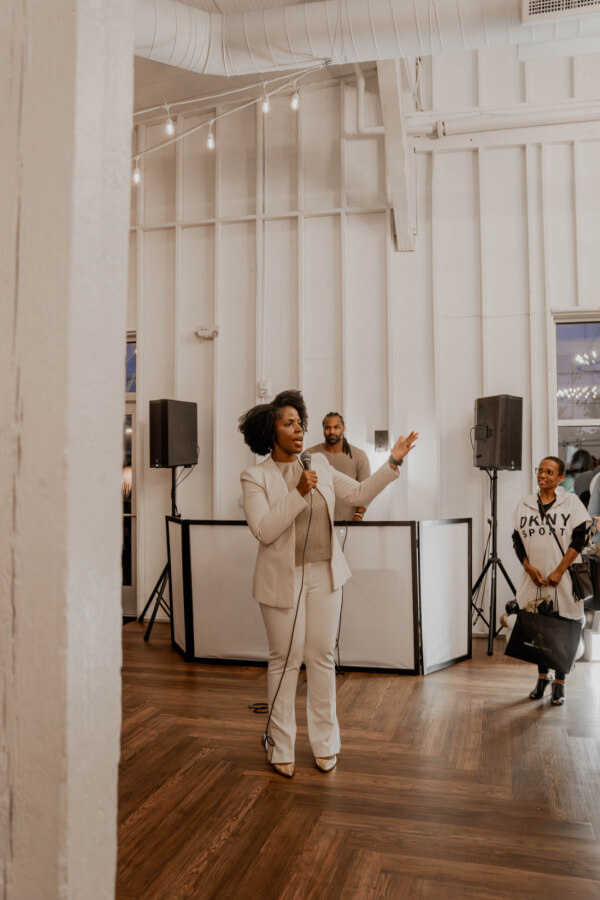
You have over 155,000 followers on social media! How do platforms like Instagram help you connect with patients and educate people about plastic surgery?
I find that just being authentically myself has made such a difference! For example, I might do an educational video, and my kids interrupt. I share my ups and downs. I find that women and people just appreciate the realness. Then, I started just sharing inspirational stuff and people connected with it.
It has become a therapeutic source for many people, which I didn’t intend, but I just followed my heart. I love educating. In the past, I’ve seen so many bad things happen because people are uninformed.
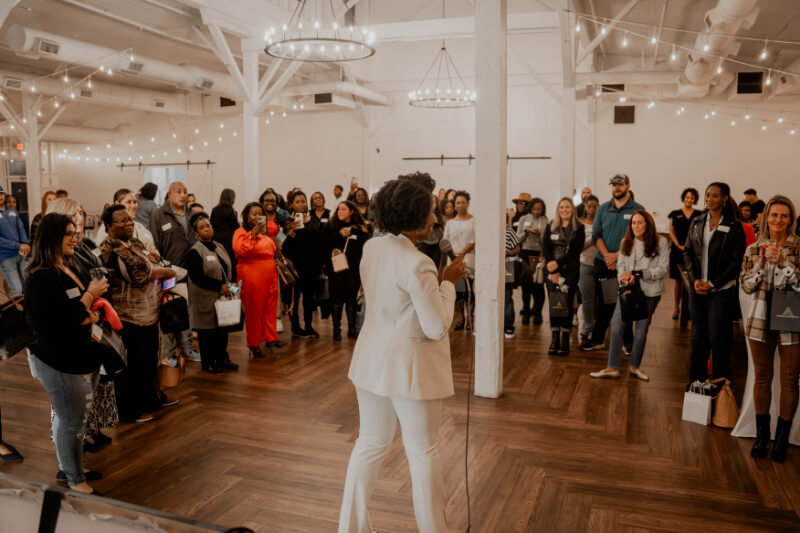
We’ve heard you enjoy cooking in your free time. What are some of your favorite dishes to prepare?
I do! Gumbo, pasta, Nigerian dishes, fried chicken, crab cakes. I love seafood and New Orleans-inspired dishes.

What’s the best advice you’ve ever received?
From my dad — impossibility is in the dictionary of a fool. He always taught me that literally anything is possible.
Excluding faith, family, and friends, name three things you can’t live without.
My skincare, exercise/movement, and music.
**********
For more inspiring stories, visit our FACES archives!



















